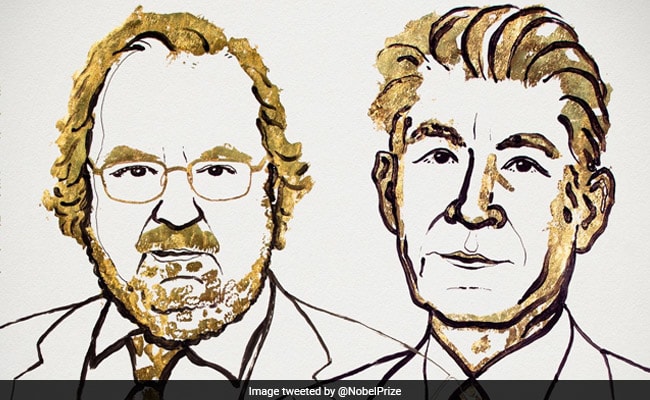Nobel Prize for Medicine 2018 awarded for cancer research
 Image tweeted by @Nobelprize
Image tweeted by @Nobelprize
Two scientists who discovered new approaches in harnessing the immune system to fight cancer won the 2018 Nobel prize for Medicine. James Allison of the U.S. and Tasuku Honjo of Japan will share the Nobel prize sum of nine million Swedish kronor (about $1.01 million).
“Allison and Honjo have shown, how different strategies for inhibiting the brakes on the immune system can be used in the treatment of cancer,” the Nobel Assembly at Sweden’s Karolinska Institute said. Unlike more traditional forms of cancer treatment that directly target cancer cells, Dr Allison and Dr Honjo figured out how to help the patient’s own immune system tackle cancer more quickly. It is for the first time, the development of cancer therapy has been recognised with a Nobel prize. The revolutionary work by the two scientists has paved the way for a new class of cancer drugs that are already changing the outcomes for patients.
Dr Allison was one among the two scientists to identify the CTLA-4 molecule as an inhibitory receptor on T-cells in 1995. T-cells are a type of white blood cell that plays a central role in the body’s natural immunity to disease. Allison said he was in a “state of shock” about having achieved “every scientist’s dream”. “I’d like to give a shout out to all the cancer patients out there to let them know we’re making progress here,” he added. Adding that he is a basic scientist, he says he didn’t get into these studies to cure cancer. He just wanted to understand how T-cells work. His family history of cancer (his mother died of lymphoma when he was 10) and having witnessed the ravages of radiotherapy and chemotherapy meant he always had an eye on whether his work might lead to a new therapy. “It was always in the back of my mind,” he said.
Dr Honjo began his research after his medical school classmate died of stomach cancer. “I want to continue my research … so that this immune therapy will save more cancer patients than ever,” he said.
The immune system normally seeks out and destroys mutated cells, but cancer finds sophisticated ways to hide from immune attacks. One way is by ramping up braking mechanisms designed to prevent immune cells from attacking normal tissue. In the 1990s, Allison discovered the first of these built-in brakes, known as checkpoints. Other teams were investigating the potential of enhancing the action of checkpoints to treat autoimmune diseases, but Allison showed that doing the reverse – switching off the brakes – could produce remarkable results in treating mice with cancer.
In 1992, Honjo discovered a second checkpoint that worked in a different mechanism. The treatments based on this work have produced dramatic improvements to patient outcomes in the clinic. Though the idea of mobilizing the immune system to tackle cancer was proposed before, it was only after the discoveries of Allison and Honjo that this tantalising possibility could be turned to a clinical treatment. The resultant drugs, known as checkpoint inhibitors, have significant side effects but have been shown to produce remarkable results in treating lung cancer, renal cancer, lymphoma and melanoma.
The Nobel Assembly’s summary said, Dr Allison, professor and chair of immunology at the University of Texas’s MD Anderson Cancer Center, “studied a known protein that functions as a brake on the immune system. He realised the potential of releasing the brake and thereby unleashing our immune cells to attack tumours. He then developed this concept into a new approach for treating patients. “Meanwhile Honjo, a professor of immunology at Kyoto University, discovered a different protein on immune cells that also appeared to operate as a brake, but with a different mechanism of action.”
Source: 1. https://www.theguardian.com/science/2018/oct/01/james-p-allison-and-tasuku-honjo-win-nobel-prize-for-medicine
2. https://www.thehindu.com/todays-paper/tp-international/us-japanese-pair-win-nobel-medicine-prize/article25100881.ece
3. https://health.economictimes.indiatimes.com/news/industry/2018-nobel-medicine-prize-awarded-for-cancer-research/66028452